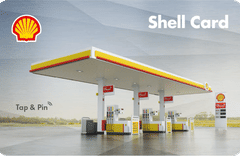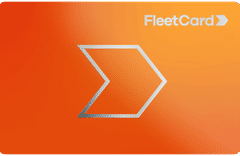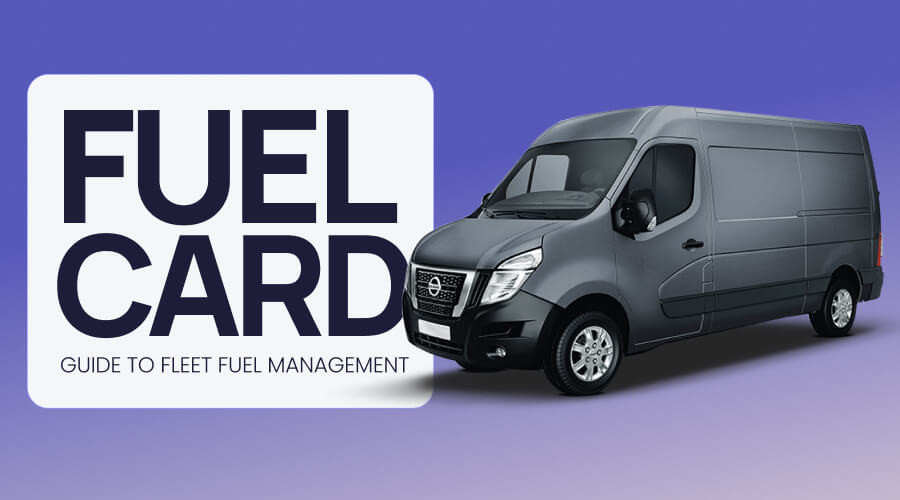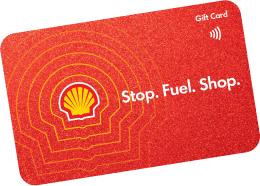Fuel is a major cost for construction businesses. Prices move up and down every week, and if you’re running trucks, utes and machinery across different sites, the spend adds up fast. Even a few cents per litre makes a big difference. A fleet using 50,000 litres a year can save $1,500 with a 3c discount, or double that if you secure 6c off. Getting fuel management right means turning those small per-litre savings into real money back in your budget.
Fuel Challenges and the Perks of Fuel Cards
Fuel is one of the hardest costs to manage in construction. Vehicles move across multiple worksites, drivers fill up wherever is easiest, and admin teams spend too much time chasing receipts. Fuel cards simplify this by cutting costs, centralising reporting, and giving you more control. Here’s how:
- Missed discounts – Drivers fuelling outside preferred networks often pay more. Fuel cards apply automatic per-litre discounts at the pump.
- Time-wasting admin – Paper receipts slow down GST claims. Fuel cards replace them with one GST-compliant monthly statement.
- Risk of misuse – Without limits, cards can be used for snacks or personal fill-ups. Fuel cards let you set controls like fuel-only or spend caps.
- Lack of visibility – Hard to see who is fuelling where across sites. Fuel cards provide detailed reports by driver, vehicle and location.
- Coverage issues – Construction jobs move around. Multi-brand cards such as Fleet Card or WEX Motorpass ensure drivers can fuel at thousands of stations without detours.
Which Fuel Card is Best for Construction Companies?
| Card | Network coverage | Ongoing discount (regular petrol) | Ongoing discount (diesel) | Key perks |
| FleetCard 🔥 | 6,200+ sites (Shell, BP, Caltex, Ampol, 7-Eleven, Mobil) | 1c at 7-Eleven/Ampol, 3c at Shell | 1c at 7-Eleven/Ampol, 3c at Shell | Wide coverage, detailed controls |
| Shell Card 🔥 | 1,500+ Shell stations | 2c regular, 4c premium | 2c regular, 4c premium | Flybuys rewards, Shell Card GO app |
| BP Plus | 1,400+ BP stations | 2c regular, 3c premium | 2c regular, 3c premium | Qantas Business Rewards points |
| WEX Motorpass | 6,000+ sites (multi-brand) | 1c regular, 1c premium | 1c | Flexible controls, accepted at multi-brand sites |
| Ampol Card | 2,000+ sites | 4c regular petrol, 2c premium petrol | 3c regular diesel, 2c premium diesel | Strong ongoing discount, Ampol app features |
How Much Can Your Construction Company Save with a Fuel Card?
The savings add up quickly once you look at your annual fuel use. Even a small discount per litre turns into thousands of dollars when you’re running a busy fleet.
Take a construction company using 50,000 litres of fuel in a year. At a standard 3c per litre discount, that’s $1,500 back in your pocket. If you catch a promotional rate of 6c off per litre, the saving doubles to $3,000. Multiply this across 10 or more vehicles and the numbers rise fast.
Here’s what that looks like with two popular cards:
- Fleet Card gives 1c off at 7-Eleven and Ampol and 3c off at Shell. If you put 30,000 litres through Shell in a year, that’s $900 saved. Add another 20,000 litres at Ampol with 1c off, and you’ve got another $200. That’s $1,100 saved without changing a thing about how your drivers fuel up.
- Shell Card offers 2c off regular and 4c off premium fuel, plus bigger promo deals of up to 7c off for six months. If your fleet uses 50,000 litres of regular fuel at the 2c rate, that’s $1,000 saved. Switch part of the fleet to premium during a 4c discount, and savings can climb even higher.
When you compare these numbers to the monthly card fees, which generally sit between $2.50 and $5.99 per card, the value is clear. A fleet of 10 vehicles might cost $600 a year in fees but save several thousand on fuel.
Are there Fees or Conditions to Consider?
Fuel cards aren’t completely free to run, so it’s worth knowing the key costs.
- Monthly fees usually fall between $2.50 and $5.99 per card. A few providers, like 7-Eleven and Metro, don’t charge ongoing fees.
- Transaction fees are often $0 when you fuel at partner sites, but surcharges apply outside the network. BP Plus charges 55c if used at a non-Caltex station, while WEX and 7-Eleven charge 0.75c per transaction.
- Interest-free periods vary. Fleet Card offers up to 51 days, BP Plus and United give 21 days, Shell allows 0–14 days, and WEX has none.
- Promo pricing can work in your favour. Many providers waive or halve monthly fees for the first six months, and some offer deeper per-litre discounts for high-volume fleets. However, you’ll want to check with the discount (if any) once the promo period ends.
Knowing these details upfront means you can match the right card to your usage and avoid nasty surprises later.
Best Practices for Fleet Fuel Management?
To really get the most out of a fuel card, construction companies need more than just discounts. The way you manage and monitor fuel use matters too.
- Restrict cards to fuel-only unless there’s a clear need for in-store spend, and review your reports regularly to spot unusual activity.
- Multi-brand cards are often best for construction fleets since sites move around, but if you’re mostly near Shell or BP stations, single-brand cards with stronger discounts might work better.
- If your fuel use is above 10,000 litres a month, always ask about custom rates. Many providers are open to negotiation.
- Train site managers to keep an eye on card use. A quick monthly check can prevent small issues from becoming expensive leaks.
Ready to Take Control of Your Fuel Spend?
Start with our Fuel Card Report Eligibility Check. In just a few minutes, you’ll see which cards your construction business qualifies for and how much you could save.
Enquire to save
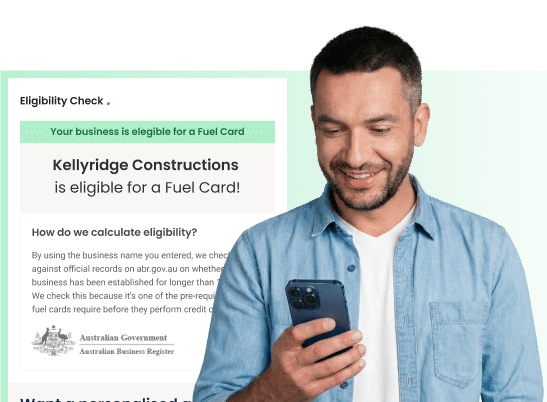
FAQs
How do I apply for a fuel card?
Most providers make it easy for businesses, including construction companies, to apply online. You’ll need an ABN, your business details, and usually a director’s driver’s licence or photo ID. Some providers also ask for recent bank statements or trading history if your business is new. Once the form is submitted, approvals can be instant if everything checks out, or within a few days if a credit review is needed. Once approved, the cards are mailed to you and can be activated online or through the provider’s app.
Which card gives the best coverage for construction fleets?
If your fleet moves between different jobsites, coverage is critical. Fleet Card and WEX Motorpass are the two broadest options, with access to more than 6,000 sites each, including Shell, BP, Caltex, Ampol, Mobil, 7-Eleven and more. Shell Card, BP Plus and Caltex StarCard are more limited to their own networks but offer better loyalty programs, like Flybuys with Shell or Qantas Points with BP. The best fit depends on whether you want maximum flexibility or deeper brand-specific perks.
Do construction companies qualify for higher discounts?
Standard discounts are available to all businesses, but if your fleet regularly uses more than 10,000 litres a month, most providers will negotiate sharper rates. For example, some cards increase the cents-per-litre discount for high-volume accounts, or offer bonus promotional periods where fees are waived. The key is to ask your provider directly, as these custom deals aren’t always advertised.
Can I track fuel use across different sites?
Yes. Every major provider offers detailed reporting by driver, vehicle and location. This lets you see where your money is going and compare sites against each other. Some systems allow you to set alerts for unusual activity, like sudden spikes in fuel use, which makes it easier to keep fleets accountable. Reports are usually downloadable in CSV or PDF formats and can be linked directly to accounting software for easier job costing.
What happens if a driver uses the card for personal fuel or shop purchases?
Most cards can be restricted to fuel-only, which means the card won’t work for snacks or drinks in store. If a driver tries to use the card for personal fuel, it will still go through unless you’ve limited the card to a specific vehicle registration. This is why monitoring reports is important — you’ll quickly see if something looks off. Some businesses set clear policies for drivers and use the reporting tools to follow up if misuse occurs.
Do fuel cards integrate with accounting or project software?
Most integrate with Xero and MYOB, and some also connect to QuickBooks. This saves time on data entry and helps allocate fuel costs to specific projects. For construction businesses, this makes end-of-month reconciliation and project costing much smoother.
What if my business is new or has limited credit history?
Approval is still possible, but providers might ask for a security bond or suggest a pre-paid option. Some entry-level cards are designed for small operators and sole traders, making them easier to qualify for. Over time, as your fuel spend builds and payments are made on time, you may become eligible for stronger discounts and higher card limits.

